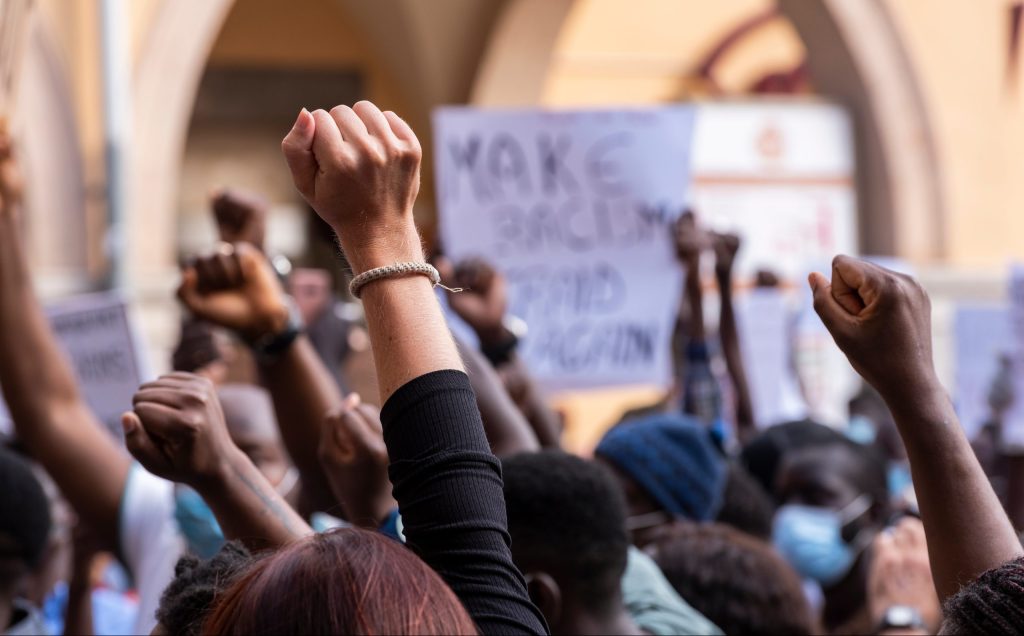 AleFron, Adobe Stock Images
AleFron, Adobe Stock Images The UNC chapter of Students for Justice in Palestine (SJP) doesn’t have a great track record on free speech and civil discourse. Its members have occupied university administrative buildings, attempted to shout down speakers, and used intimidation tactics on Jewish students.
So it’s unsurprising that SJP shows equal disdain for the university’s commitment to institutional neutrality.
The Chapel Hill student organization has shared a list of “demands” for university action in an online petition and in a letter to UNC administration. The list of demands, if met, would be the equivalent of UNC taking sides in the Israel-Hamas conflict.
A Daily Tar Heel op-ed penned by UNC’s SJP chapter states,
On Oct. 27, we hand-delivered a letter to the UNC administration calling for the University’s divestment from Israeli apartheid. We continue to await a response and are disappointed by the administration’s failure to act promptly.
A partial list of demands is included on the petition site:
We demand that UNC divest from products supporting Israeli genocide, apartheid, and settler colonialism. Specifically, we call for them to divest from Sabra hummus, HP technologies, and Caterpillar construction vehicles and/or construction contractors that use Caterpillar vehicles. This demand also includes divesting from UNC’s study abroad programs in Israel, as well as any other UNC-sponsored travel to Israel.
We demand that UNC set up a commission that works with both students and faculty in order to account for, plan for, and report on how UNC will take immediate and long term steps to divest from Israeli apartheid.
We demand that UNC commit to transparency regarding its activities through the UNC system’s investment vehicle (e.g., “The Fund”) and dedicate itself to more democratic and socially responsible investment prerogatives. We refuse to have our tax dollars and tuition go towards the military-industrial complex, dirty energy, or the carceral system.
UNC is right to ignore such demands. Making investment decisions based on a political or social agenda would violate UNC’s commitment to institutional neutrality, which was adopted by the Board of Trustees in July 2022. UNC’s “Resolution on the Affirmation of Academic Freedom and Freedom of Speech” defines institutional neutrality as the principle outlined in the University of Chicago’s “Kalven Report on the University’s Role in Political and Social Action.” That statement explains why collective actions on social issues are destructive to academic freedom and free inquiry:
There is no mechanism by which [a university] can reach a collective position without inhibiting that full freedom of dissent on which it thrives. It cannot insist that all of its members favor a given view of social policy; if it takes collective action, therefore, it does so at the price of censuring any minority who do not agree with the view adopted. In brief, it is a community which cannot resort to majority vote to reach positions on public issues.
Universities and university foundations must uphold their fiduciary responsibility to the institution by relying solely on sound financial judgment when making investment decisions. It is both university policy and smart practice to ignore politics in favor of responsible stewardship.
Jenna A. Robinson is president of the James G. Martin Center for Academic Renewal.
